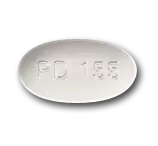Join Today & Get 4% Cash Back Then 6, 7...Up to 10% Off Reorders!
| Posted By: |

|
February 27, 2008, 11:48 am |
| Subject: | Crackdown on Big Pharma | |
|
NEW YORK (Fortune) -- For years, Big Pharma has kept competition from generic drug makers at bay by essentially paying its would-be rivals to stay out of its business. Now government watchdogs have declared war on these financial deals - a move that could bring cheaper drugs to market faster while costing giant drug developers billions in lost revenue. Just last week the Federal Trade Commission launched a high-profile battle against Cephalon (CEPH), the maker of the blockbuster narcolepsy medication Provigil, over a $200 million payout it gave to four generic companies in exchange for an agreement not to develop a competing medication. In a lawsuit filed in federal court in Washington, D.C., the FTC claims that the deal violates antitrust law. The deals behind the FTC crackdown have become increasingly common ever since Congress opened the door for generic drug competition in 1984. That's when a new federal law allowed generic drugmakers to challenge patents held by brand-name pharmaceutical companies in court. As these lawsuits grew in number, Big Pharma started to broker settlements whereby the generic companies agreed not to develop a competing drug in exchange for a onetime payment, often totaling millions of dollars. The FTC says there have been 100 deals like this since 2004. Big Pharma and generic makers love them. Brand name developers get to protect their cash cows (it's estimated that sales of a brand name drug shrink by 80 percent in the first year after a generic version is released), while generic companies pocket a tidy sum without having to take on the high costs and risks of promoting a drug. But regulators think these deals are illegal and have tried for years to get courts to agree - without much success. The way they see it, these patent settlements harm consumers because they prevent less expensive drugs from coming to market quickly. Americans spend more than $286 billion dollars on prescription drugs each year, according to the IMS Health market research group. Generics make up 65 percent of all prescriptions, but are roughly 20 percent of the costs. On average, generics cost nearly two-thirds less than their brand-name rivals. So far regulators haven't had much success reining in these patent settlements. Only two of the nation's 11 federal circuits have declared these patent settlements unlawful. Last year, the U.S. Supreme Court refused to weigh in when it sided with AstraZeneca (AZN) in a government lawsuit challenging a $21 million deal it struck with Barr over the cancer treatment tamoxifen. Meanwhile, a Senate committee last week approved a bipartisan bill that would prohibit brand-name drug manufacturers from using settlement agreements to keep generic equivalents off the market. The full Senate has not scheduled a vote on the measure. Similar legislation is pending in the House of Representatives. The practice is also under scrutiny overseas. The European Commission recently began investigating AstraZeneca, GlaxoSmithKline, Johnson & Johnson (JNJ, Fortune 500), Merck (PFE, Fortune 500), Pfizer, and Sanofi-Aventis (SNY) for similar payments to generic makers. Big Pharma argues that a sweeping ban on these patent settlements would stifle innovation in the drug industry. Ken Johnson, senior vice president of Big Pharma's powerful lobbying apparatus, PHRMA, insists too that a prohibition is unnecessary given that the FTC and others have the authority to challenge individual deals. "The courts and enforcement agencies like the FTC are in the best position to review these settlements on a case-by-case basis to ensure that they are not harmful to competition," said Johnson. But the FTC's goal behind last week's Cephalon lawsuit isn't a narrow victory. The agency is hoping the Supreme Court will eventually take up the case and issue a precedent-setting decision in its favor. "We're trying to reverse the course of the law and get another circuit to find these deals illegal in the hopes that the Supreme Court will resolve [the issue] once and for all," said an FTC staff member. The government's case against Cephalon centers on a 2006 deal to keep a generic version of Provigil, which treats sleepiness in patients with narcolepsy and other disorders, off the market. Four generic drug makers - Teva (TEVA) Pharmaceutical Industries, Barr Pharmaceuticals, Ranbaxy, and Mylan - had agreed to drop lawsuits challenging the validity of Cephalon's Provigil patent until 2012 in exchange for a total of $200 million. Wall Street applauded the deal, which protected a drug that was responsible for 44 percent of Cephalon's $1.7 billion in 2006 revenues. In its legal filing, the FTC claims that the settlement violates antitrust law and asks the court the issue a permanent injunction that would effectively allow generic versions of Provigil to come to market much earlier than 2012. Cephalon denies any wrongdoing. |
||
Comments:
|
|

|
April 6, 2008, 8:25 am Flag as Inappropriate skatss says... |
|
The ways that big companies make sure that they keep their profits high goes way beyond unethical, especially when it has to do with drugs, healthcare and oil. These products are important to our country's overall health and to the health of every person. I understand that making a profit is the reason to have a business, but the aim in these specific businesses, especially, should be more than just profits. But greed somehow is the thing that's worshiped in our society lately. To make your profits over dead bodies, over people's suffering should be illegal. I might be naive but really --bottom line -- How do the people who make these "deals" live with themselves? |
||
What do you think?
Today's Top
Sellers
Recognized by
HOT
TOPICS:
Aging
Alternative Medicine
Big Pharma
Children's Health
Consumer Products and Services
Diseases and Conditions
Drug Talk
eDrugSearch.com Testimonials
Everything Else
Food and Drug Administration
Health 2.0
Health Insurance
Healthcare100
Humor
Inspirational
Introduce Yourself
Medications
Mens Health
News and Media
Public Health and Safety
Religion and Spirituality
Reproductive Health
Rx Pharmacy Discussion
Senior Health
Suggest a Category
Using eDrugSearch.com
Weight Loss Tips and Issues
Womens Health




